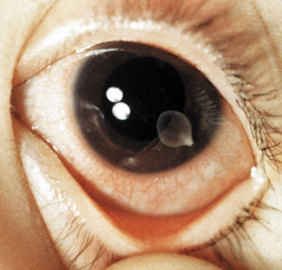Introduction

Treatment of most common eyes diseases can vary based on the severity of the symptoms and its root cause. Some eyes diseases can be treated with as little as an over-the-counter medicine such as non-prescription eye drops. Other eyes diseases may require more treatment that could include surgery such as laser surgery. Before making a determination of the best treatment course possible, your doctor will run a series of diagnostic tests that will help him or her figure out how to treat the disease with as minimal invasion as possible. The ultimate goal of any treatment is to save your eyesight. If you are uncomfortable with the recommended treatment, you can always ask for a second opinion. Ask your friends and family for a recommendation regarding a good eye doctor.
Eyedrops/Ointment
One of the most common treatment of eyes diseases is the use of eyedrops or ointment. The eyedrops or ointment are typically prescribed for conditions such as glaucoma. The eyedrops and ointment are medicated treatment that is available by prescription. Side effects are possible with the use of each. Once the eyedrops and ointment are administered, you can experience side effects in other areas of the body. Common side effects of each include itchiness, redness and a rash. When you are prescribed eyedrops and ointment, ensure that it is taken only as prescribed. Using more than needed can result in adverse effects.
Oral Medications
If eyedrops and ointment prove to not be effective in treating eyes diseases, your doctor may recommend the use of oral medications. The medications range from antibiotics to carbonic anhydrase inhibitors. The antibiotics are commonly prescribed if the eyes diseases is the result of an infection or other type of bacteria. A carbonic anhydrase inhibitors is recommended to relieve pressure in the eyes that is commonly seen in eyes diseases such as glaucoma. Oral medications can also cause side effects. Commonly experienced side effects with medications include upset stomach, rashes and weight loss. In more extreme cases, the use of the medications can result in depression, kidney stones and fatigue. More serious side effects should be discussed with a physician to determine if the medication needs to be adjusted or if you need to be weaned off of it.
Surgery
As a last resort to eyes diseases, surgery is a possibility. The goal of surgery varies based on the eye condition. Surgery is a common treatment for conditions such as retinal tears, retinal detachment and cataracts. The type of surgeries vary from laser surgery to complete replacement of the eye. If complete replacement of the eye or retina is recommended, there is a chance that there will be a loss of vision experienced. Some surgeries, such as scleral buckling, involves altering the overall shape of the eye. The shape is usually altered with the use of an indention. Before making the decision to perform surgery on the eye, seek a second opinion from a medical professional you trust. The professional can help you to determine if the surgery is necessary and if there are other options that need to be explored first.